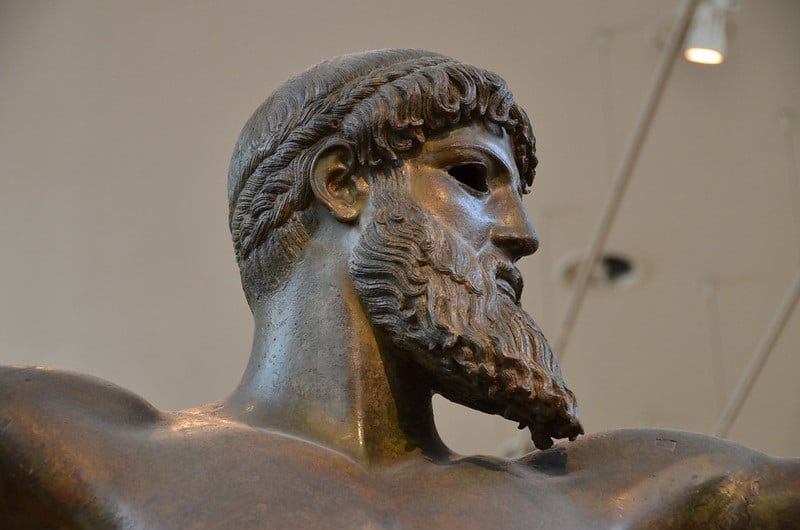

You’d be wrong to think the ancient Greek gods bled the usual, red liquid like you and me, as ichor was the substance that defined their existence.
When those dazzling, dramatic, and downright powerful deities actually got wounded (which wasn’t often, mind you), something else entirely flowed through their veins. It was called ichor: potent, mysterious, and honestly, pretty intimidating.
This wasn’t just like the blood mere mortals had; it was like divinity turned into liquid, instantly setting them apart from the people who worshipped, feared, and sometimes, incredibly foolishly, tried to fight them. The idea defines what makes Greek mythology fascinating, reminding us of the vast gap between ordinary humans and their often unpredictable gods.

What exactly went into this mythical fluid? Ancient Greek ichor is usually described as golden, maybe sometimes clear and ethereal, but it was never mistaken for mortal blood.
These myths, especially how Homer passed them on to the next generations, describe ichor appearing whenever a god got injured. It was directly tied to their immortality. Sure, a wound leaking ichor could hurt—the gods could feel pain, just ask Aphrodite after her run-in with Diomedes!—but it wouldn’t kill them like blood loss would lead a human to death.
You might picture it as their version of super-fuel, brewed from that exclusive diet of ambrosia and nectar. Eating like that, without the bread and wine mortals relied on, was crucial. It kept them immortal and produced this unique godly fluid. But don’t even think about trying to get your hands on some; ichor was supposedly nasty to mortals, corrosive, and lethal if it touched a human’s skin. It drew the ultimate line between those on Olympus and everyone else below.
Homer’s Iliad gives us the most famous picture of ichor, right from the chaos of the Trojan War. Aphrodite, the goddess of love who usually stays out of fights and messy situations, dives in to rescue her son Aeneas. But the hero Diomedes, supported by Athena (you’ve got to love the divine familial feuds!), doesn’t back down and spears Aphrodite’s wrist. Homer explains in Book 5 of the Iliad:
”…and forth flowed the goddess’ immortal blood, ichor, such as flows in the blessed gods; for they eat no bread, neither drink they flaming wine, wherefore they are bloodless, and are called immortal.” (English translation by A.T. Murray, Loeb Classical Library, 1924)

Following this incident, poor Aphrodite rushes back to Olympus, crying to her mother, Dione. It’s a moment that shows even goddesses weren’t untouchable and felt physical and emotional pain.
The scene here introduces ancient Greek ichor and explains how these gods weren’t abstract ideas but creatures with supernatural powers and human flaws. They had bodies, they could get hurt, and they reacted, making them feel strangely relatable, despite all their immense power.
What is it about this divine fluid that still makes it a fascinating and relatively unknown part of Greek mythology? Well, ancient Greek ichor is more than just a divine fluid. It was a symbol of raw power, of divine status, of being utterly separate from mortals. It’s the substance that physically made a god different than their followers.
Ichor offered a believable story, a tangible (well, sort of) reason why gods were immortal and humans weren’t. Think about it—could there be a definitive way to show the line between mortal and divine than a substance that keeps one alive forever and burns the other to the ground? That core idea has been so simple yet effective that it managed to stick around for centuries.
Most of us don’t believe in literal golden-blooded gods anymore, obviously, the underlying notion of some special defining elements—something that marks certain beings as fundamentally different—pops up again and again in our stories and in how we talk about exceptional talent or power. That fascination with a ‘divine spark,’ whether it is actual ichor or just incredible skill, hasn’t vanished.
Therefore, Ichor allows us to look into how the ancient Greeks saw their world – their ideas about gods and divine power, being human, and the vast gap they saw between the two. It tells us a lot about how they tried to imagine beings so much stronger than themselves, yet still close enough to meddle in human lives (often making a mess).
Thinking about that golden fluid flowing through divine veins pushes us to reflect on things humans have always wrestled with: the nature of power, the boundaries of our own lives, and that special kind of magic embedded into mythology, a magic that, maybe like ichor itself, keeps flowing right through our culture.
